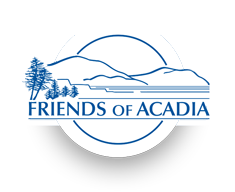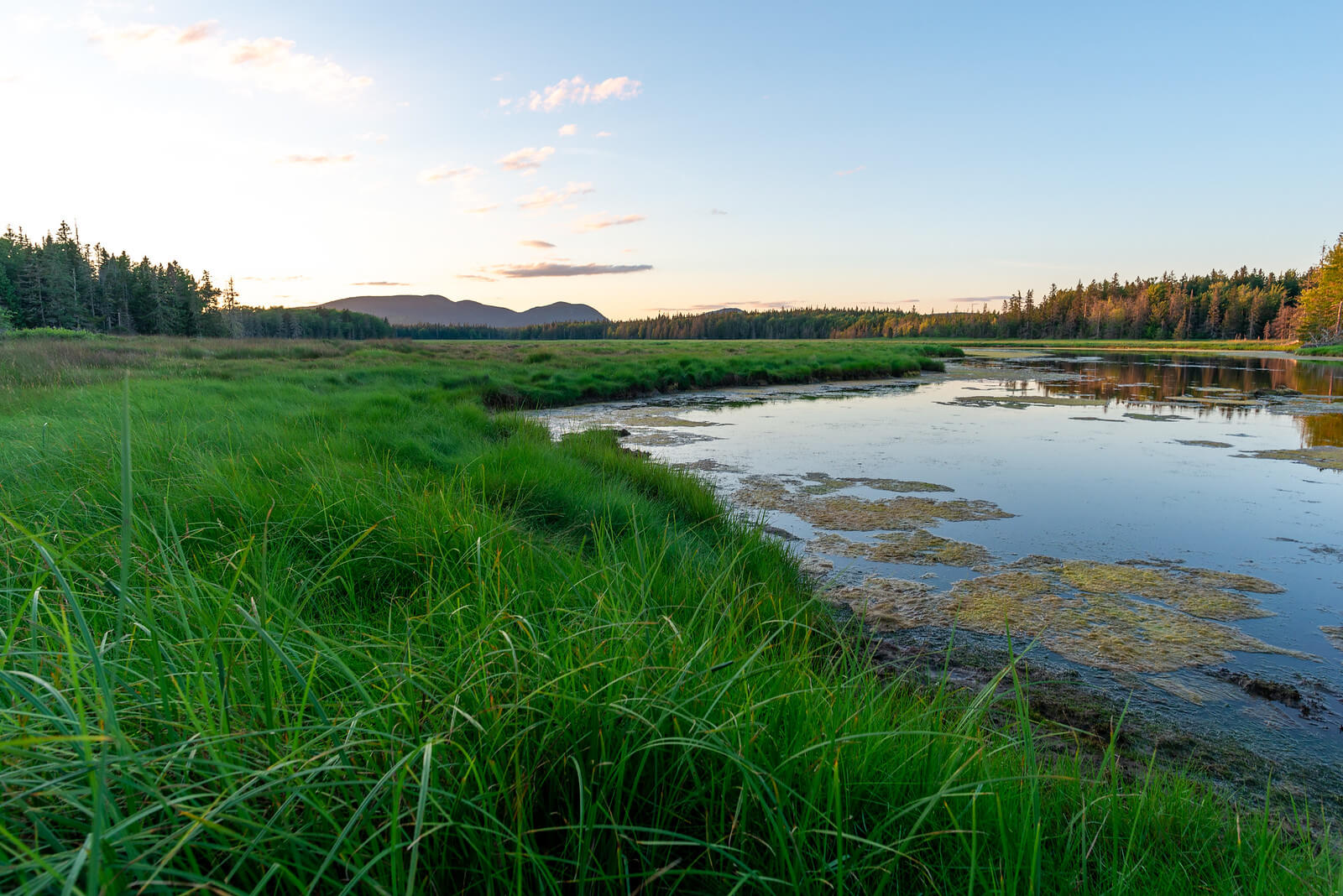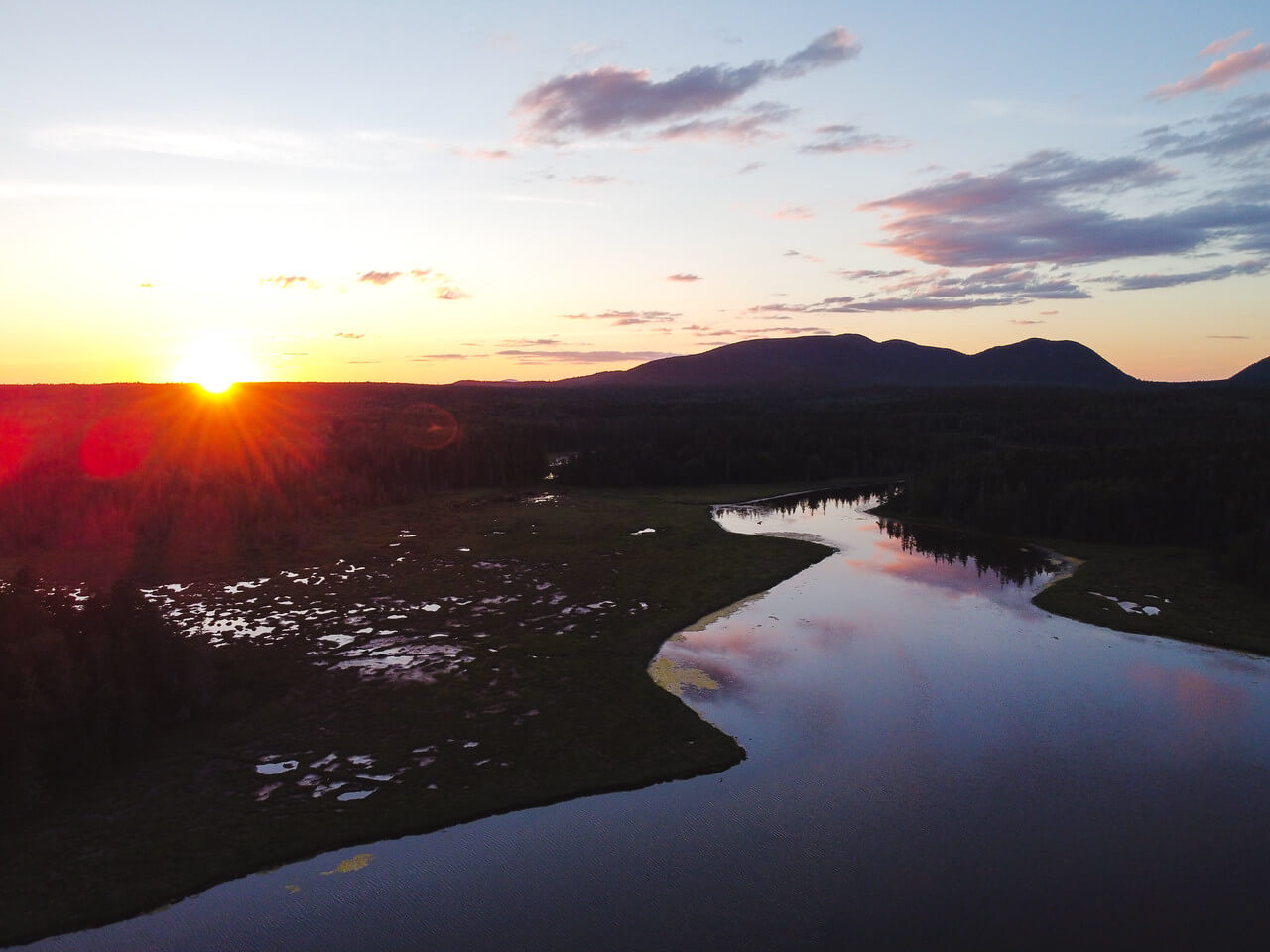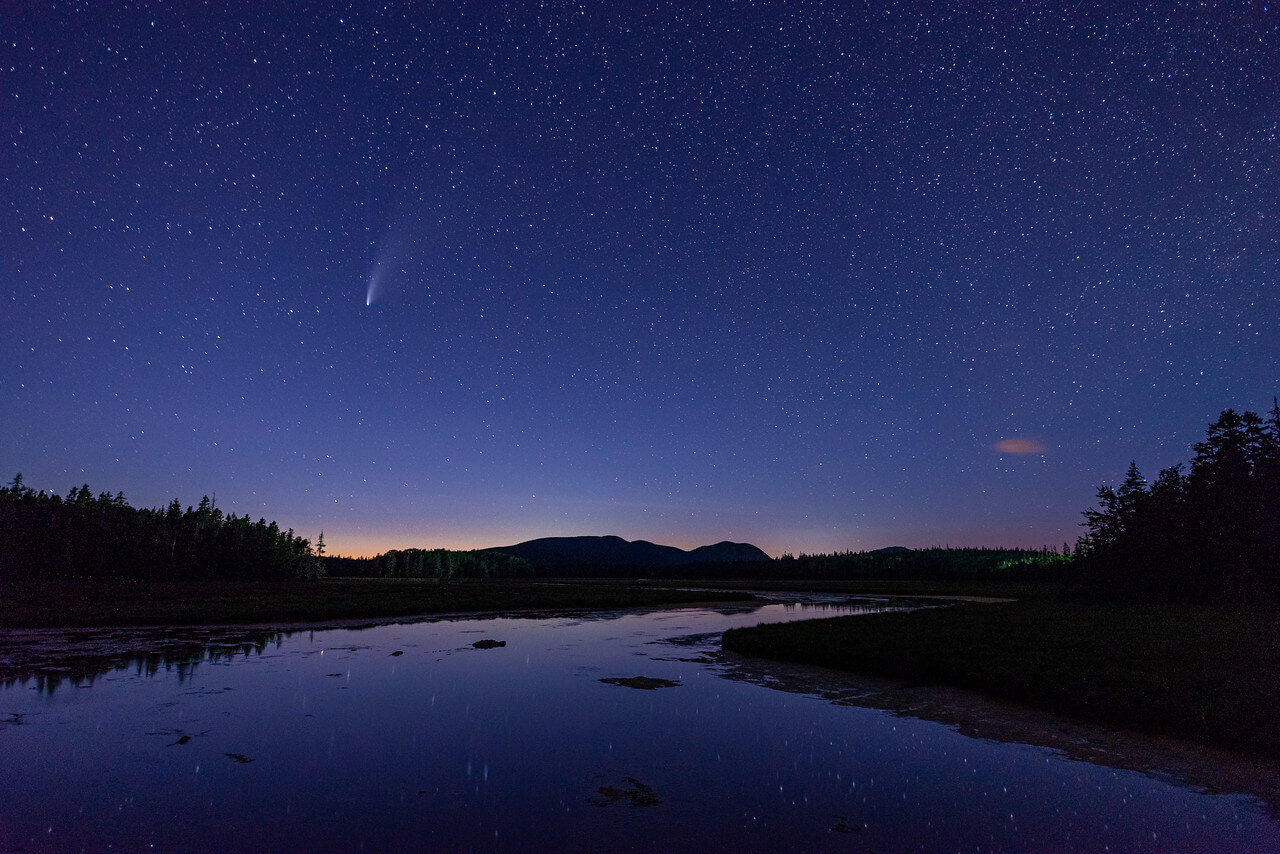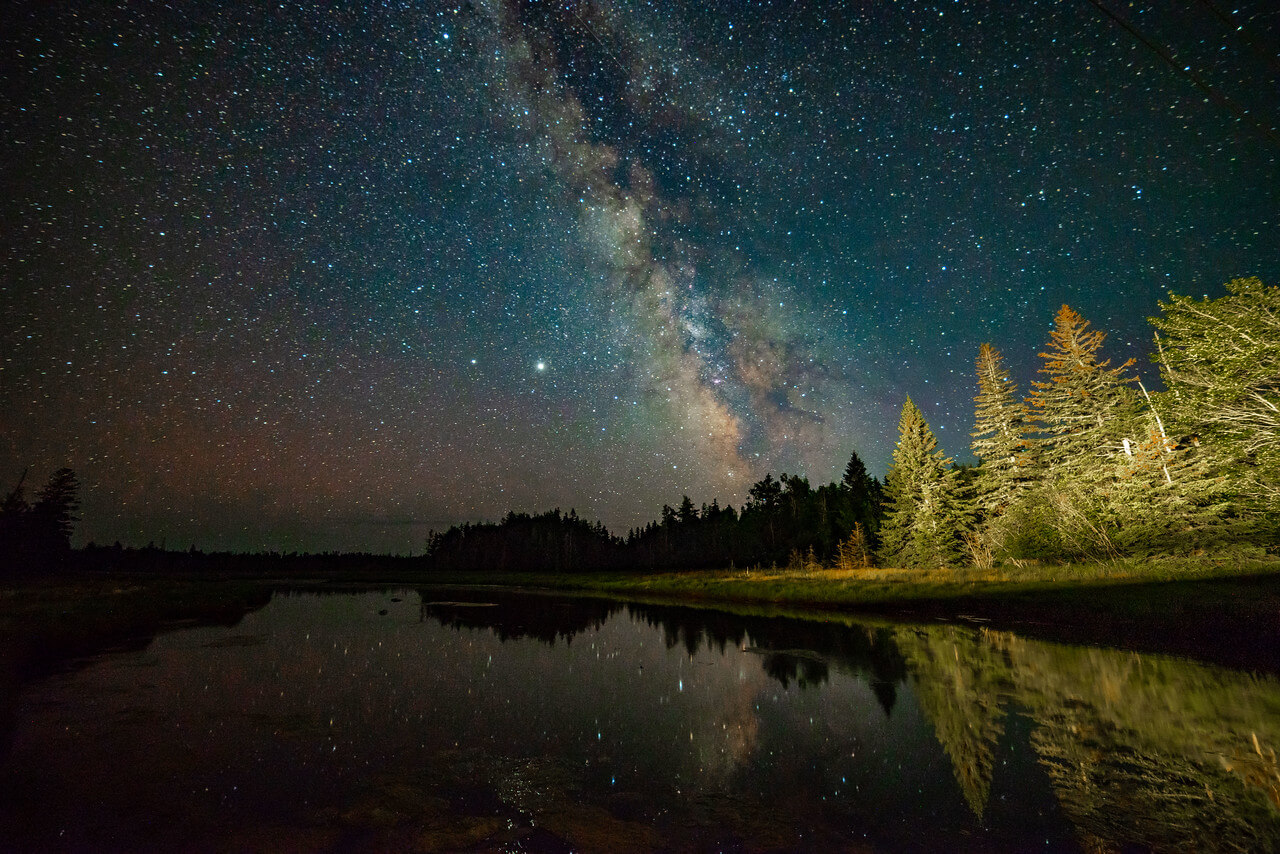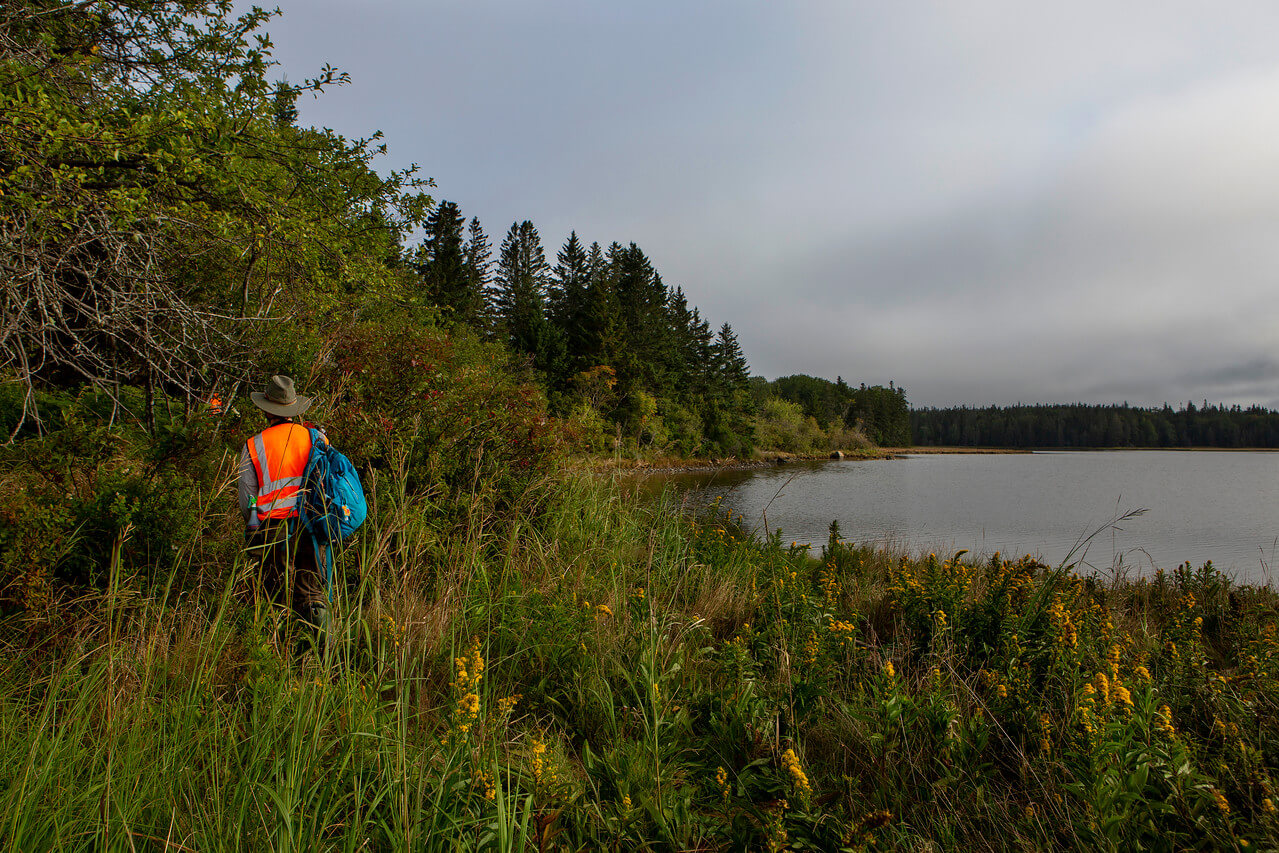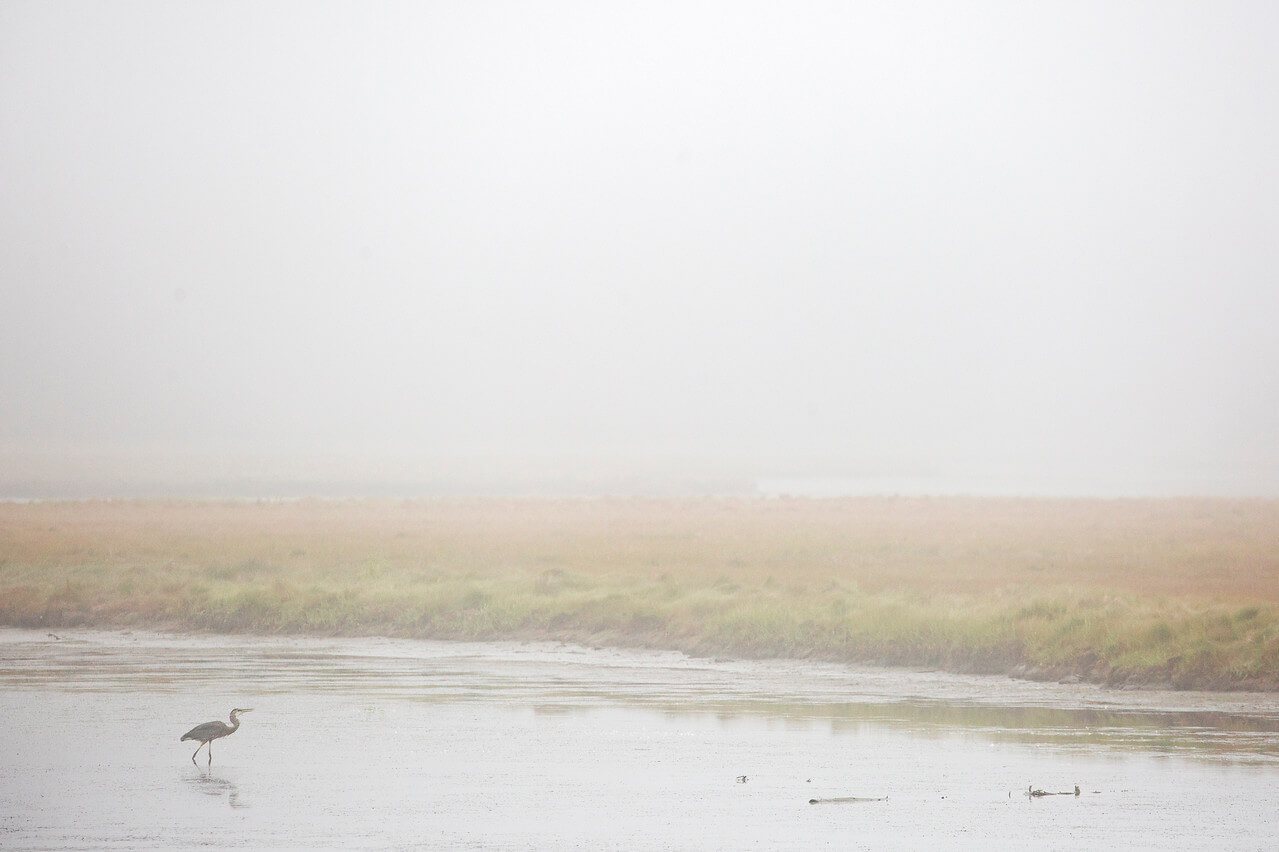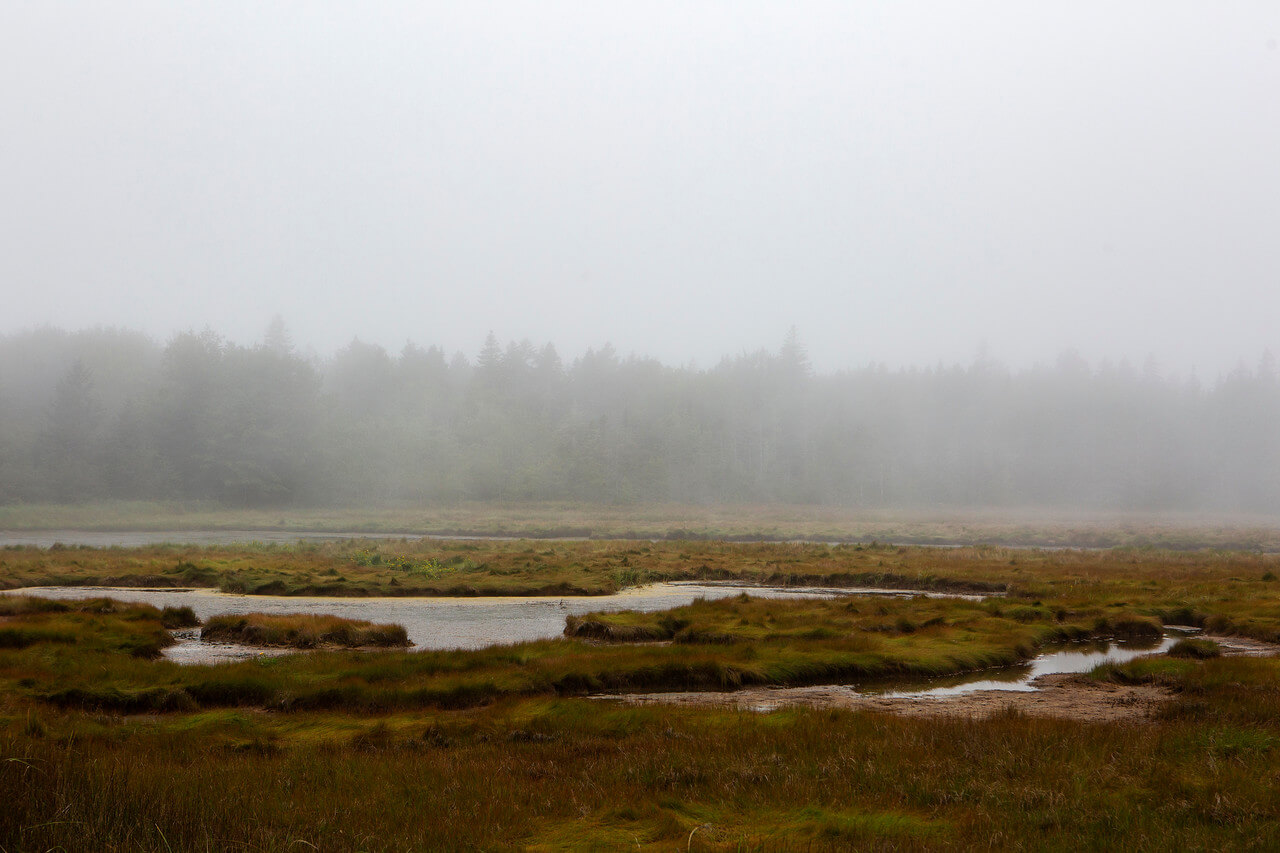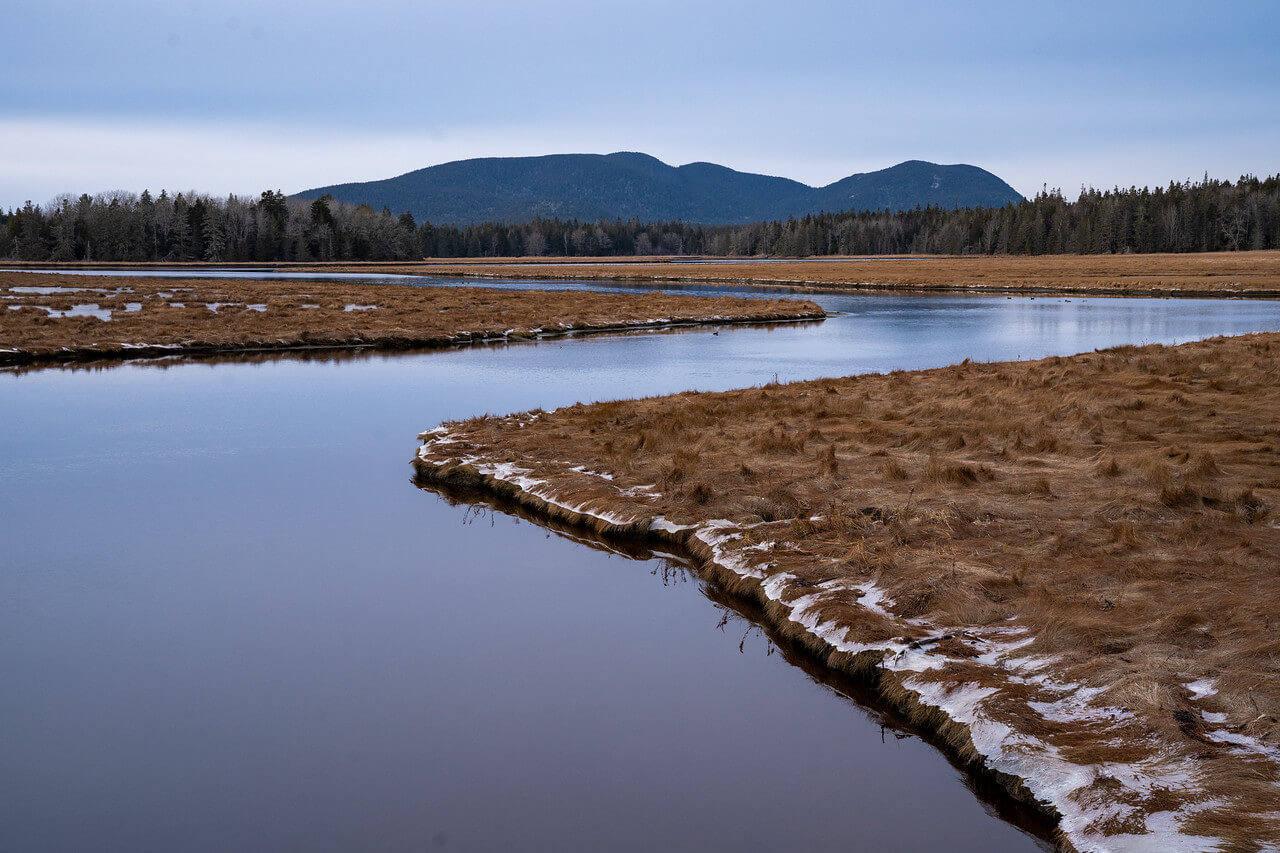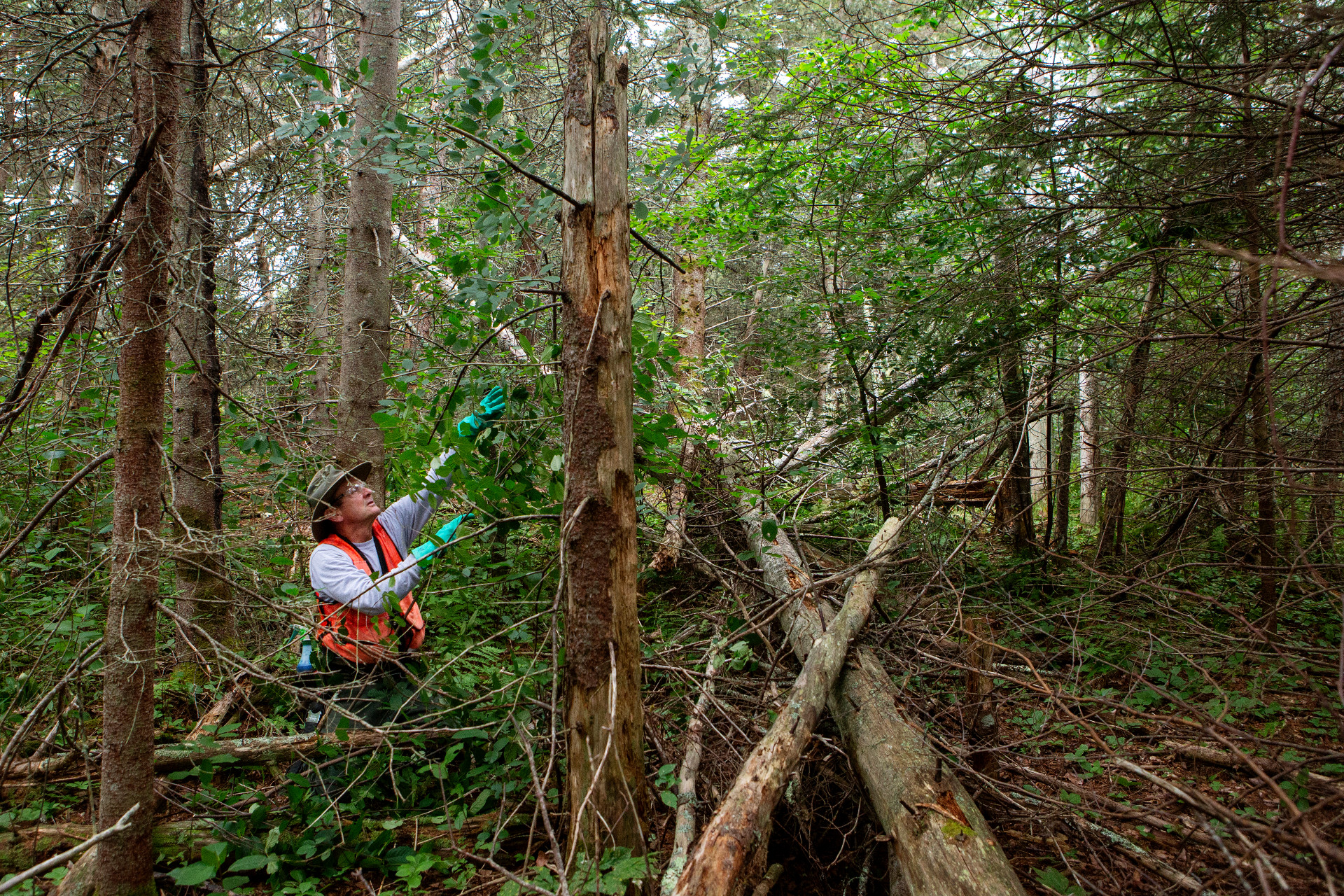
Acadia National Park biological science technician James Burka works to manage an infestation of glossy buckthorn in the Bass Harbor Marsh in Acadia National Park, Tuesday, September 8, 2020. (Photo by Ashley L. Conti/Friends of Acadia)
Bass Harbor Marsh is located on the western side of Mount Desert Island and is the largest area of salt marsh in Acadia. A small estuary is formed where freshwater streams meet the sea, with brackish (part saltwater, part freshwater) conditions influenced by the twice-daily tides. Bass Harbor Marsh has been severely impacted by invasive plant species that have displaced the native species that support a greater diversity of wildlife.
Together with partners-in-science like Friends of Acadia, Acadia National Park scientists and volunteers are actively working to remove the problematic plants and restore the health of Bass Harbor Marsh. This research-based effort is also connected to work at the summit of Cadillac Mountain and at the Great Meadow Wetland.
Friends of Acadia supports the work to remove the invasive glossy buckthorn at the Bass Harbor Marsh, monitor biodiversity at the site, and try several planting methods and native plant species mixes to determine what will best hold up to stress from climate change, deer browse, invasive earthworm disturbance to soils, invasive forest pests, and other factors.
The lessons learned in directing the future of this important site will be applicable to other habitats as the park evolves with climate change.
 Join
Join Donate
Donate Acadia National Park
Acadia National Park